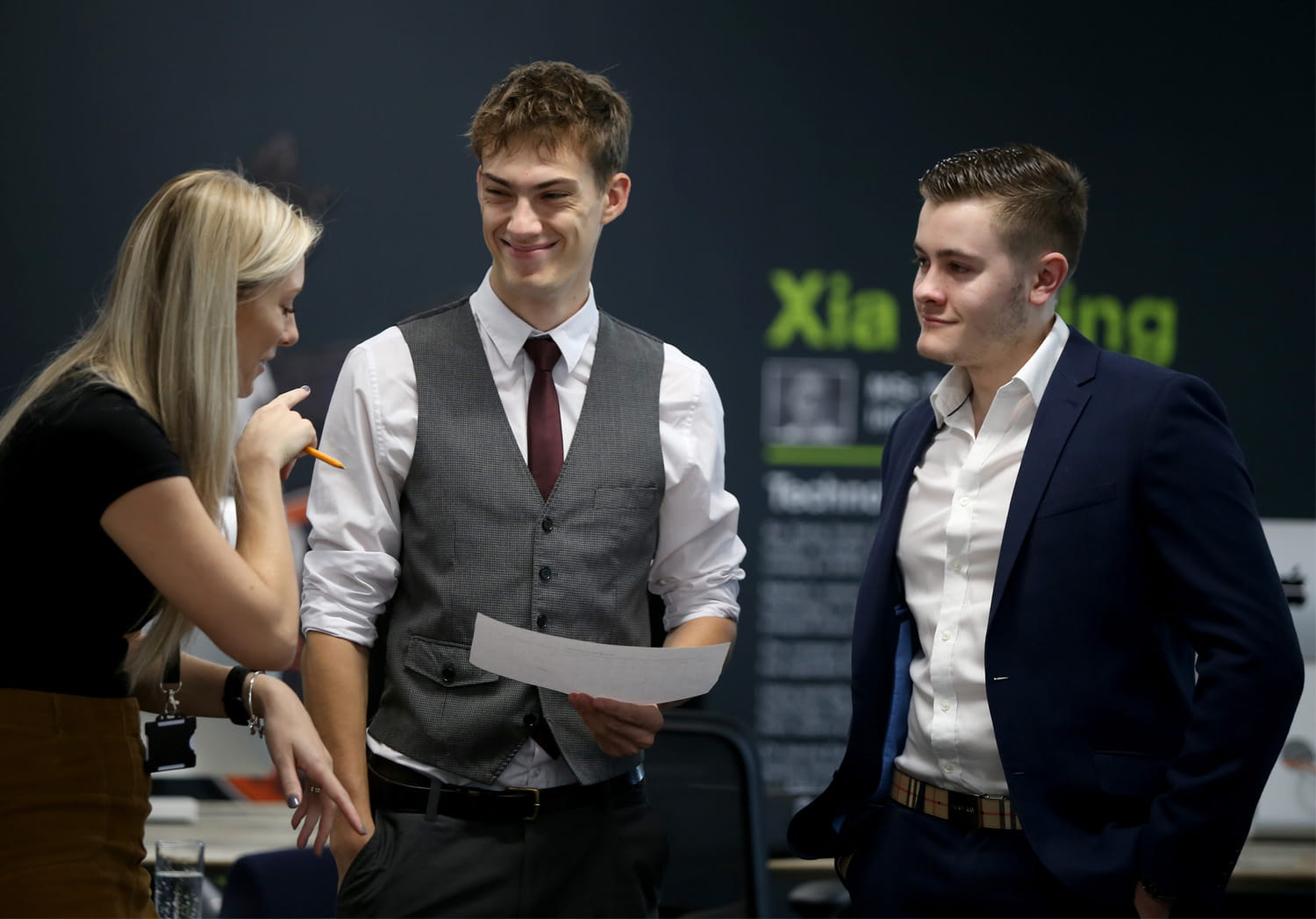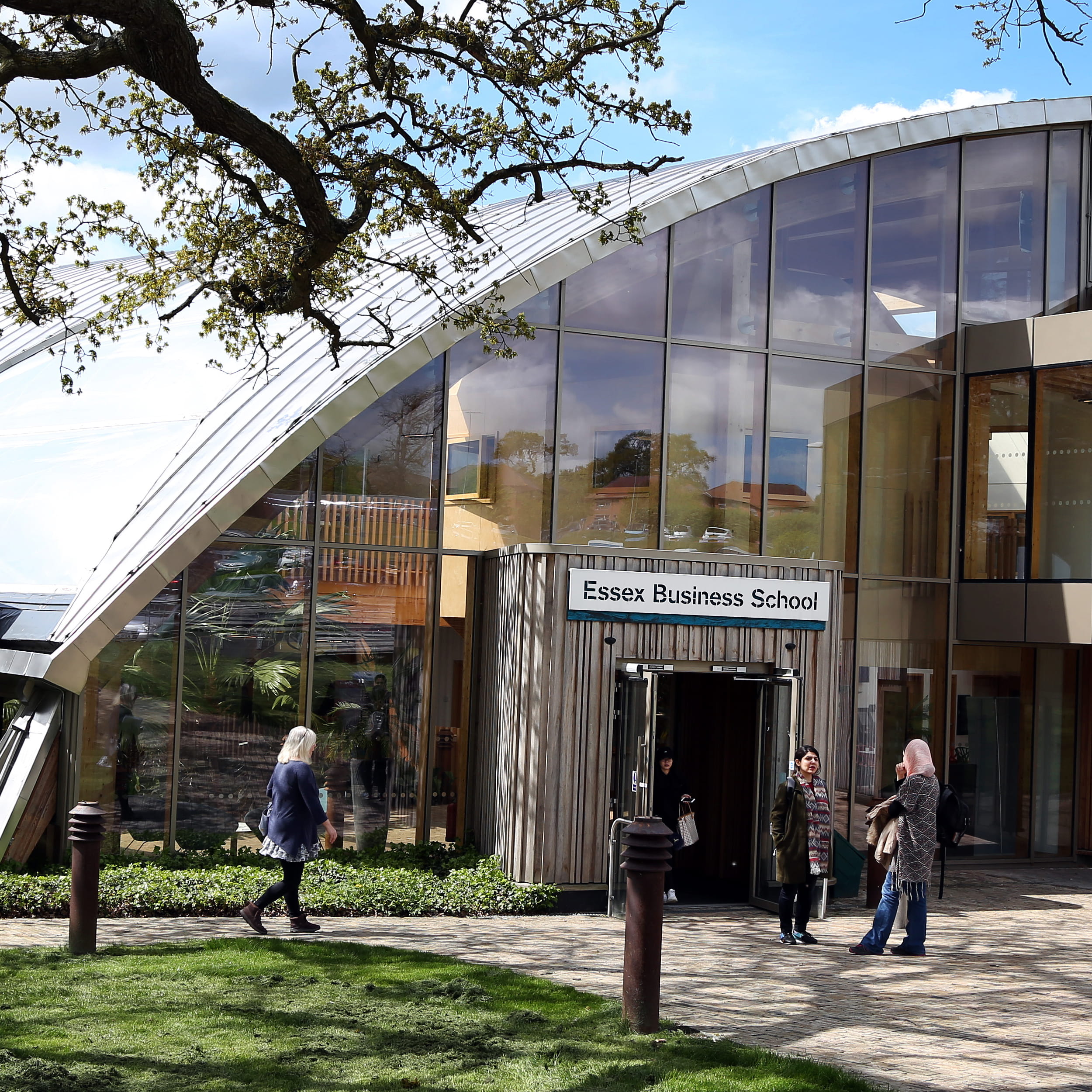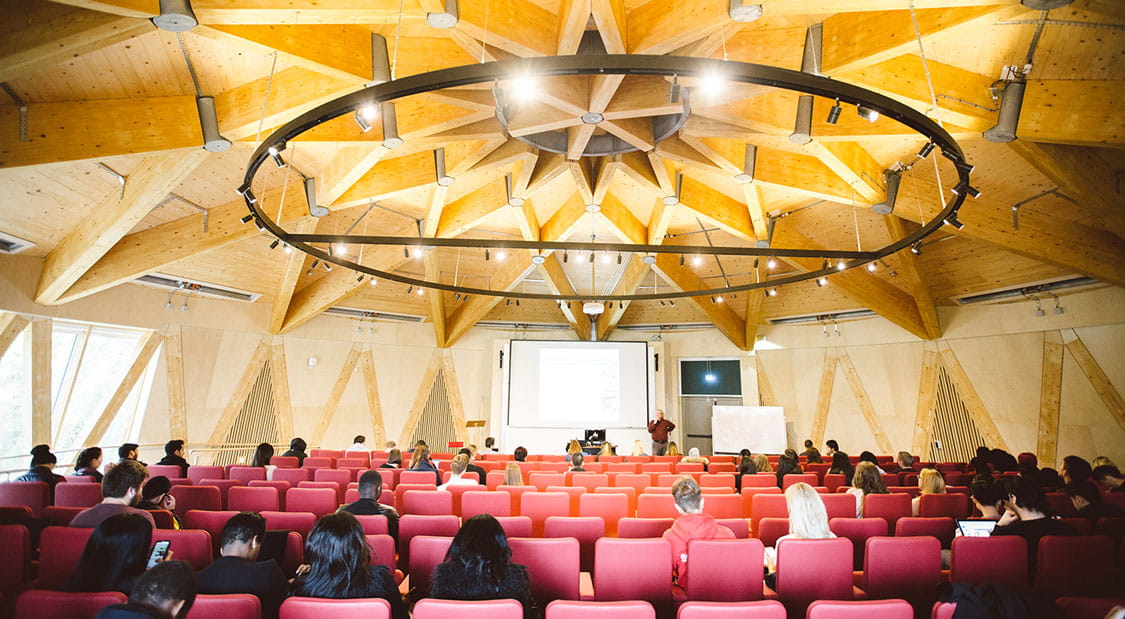''CEOs of charities were crying out for innovation to bring them into the digital age.''
Alexander Slade and Ben Reeder met while living as neighbours on campus. A shared passion for charity shopping and a strong entrepreneurial mind-set led to their business idea, now set to revolutionise the charity retail sector with a unique online platform.
How did you two meet and what inspired you to work together?
Ben: Initially we didn't really know what we wanted to do. We were great friends and both knew we wanted to pursue a start-up venture, because that's what we were really passionate about. So, we would meet every week and we would talk about anything and everything. Until one day Ben mentioned this, and we thought let's give it the green light!
In terms of developing the specific idea we immediately went with our stage one discovery phase, which essentially involved us going to every charity shop we could find locally. We basically did a quick elevator pitch and asked store managers: "would this be of use to you guys, would this be something that truly adds value to your store?"
95% of them said: "yes this is something that could be great", so we thought let's do this. We got in contact with the Essex Start up Hub to see what kind of competitions were available to access start-up capital and it went from there basically.
What aspects of your business would you say are unique?
Ben: I'd say the fact that we're essentially a clothing and fashion business who have a sustainable goal and where all of the money generated will be going towards charity. So it's deliberately trying to subvert issues like fast fashion and unsustainability which isn't something that a lot of companies at the core of the fashion industry do right now. I'd say that makes us unique. And also, just bringing the charity retail sector of clothing into the online market is pretty unique as well, especially in an exclusive capacity. Although they can sell on eBay that's not exclusive to charity shops. If you search for jackets, you're flooded with jackets from Joe Bloggs in his living room as well. So as an exclusive platform for charities I think that is probably the main, unique feature.
Alexander: Just to add there is nothing which really caters to the individual stores on the high street, you know, the store that's perhaps on the back road in a subprime location and doesn't really have the means in the current market to advertise its stock and get it out there. So we take that issue and we completely cut it out by creating this online platform where the location of the store doesn't matter. And that's something that has never been seen in this market. It's been seen with other tools. Non-charity stores have it, but currently for the charity retail market in the UK there isn't a platform.
What support did you get at Essex to help you with developing your business?
Ben: We've had amazing support from Essex. I would probably go so far as to say if we hadn't had the support that we had we wouldn't have pursued RealRack as a serious project. I mean we could easily have just gone to the pub for the rest of our university careers and it would have been a cool idea that sort of sat in the back of our heads.
The first time we really came into contact with the Startups Team was actually in an unrelated capacity when we went during our first year to the Eastern Arc Start-up Weekender. It was an amazing experience; you learn about entrepreneurship and idea generation and how to work in a team and how to pitch project.
This idea was no longer just in existence in our heads - it showed us all the skills that you need and gave us a taste of how to pitch. It also got us in contact with the team and we knew there was someone we could reach out to if we had an idea in the future.
Can you offer any tips to other students that want to access business or funding support?
Ben: My first tip would be go to one of their workshops almost regardless of what the topic actually is. I can't recall the first one we went to. It might have been financing or branding or something but once we went to a workshop and met the team we saw that there was this community. And I think the Innovation Centre will really help with this because they've properly built a little hub there.
There is a community of people interested in entrepreneurs. Even from that first workshop we were meeting other students talking about their own ideas, you felt like you were being seriously considered as an entrepreneur from step one. Even if you didn't have an idea then this supportive environment really helps you to seriously consider yourself in that way too. And so my first tip would just be go to any event that they're running.
That's how we heard about the pitch events – it was in a completely unrelated workshop and this lead to our funding opportunities.
Alexander: My biggest tip would be ‘you get what you put in.’ I would say it was slightly easier for me and Ben because we had each other to go to events together, which reduces the barriers that some people may put up about meeting new people but, if you can overcome that initial barrier, and just go yourself, you're going to get so much value. It’s worth making the most of your time at Essex.
What does Essex mean to you?
Alexander: To me Essex is of course a place of learning and education, that’s one aspect I treasure greatly. I think it's also a place where I've developed pitching skills, social skills and developed my entrepreneurial skills. So I'm very proud to say I'm from Essex Business School and from the University of Essex. It's helped me develop not only as a person, but an array of skills.

''Innovation is the coming up of an idea, a product or service which benefits and solves an issue within the climate around you, and the market around you, for the world around you. I think ethical innovation is what we need.''
- Alexander Slade and Ben Reeder, Founders of Realrack
Find out more about skills and employability with the Essex Business School






